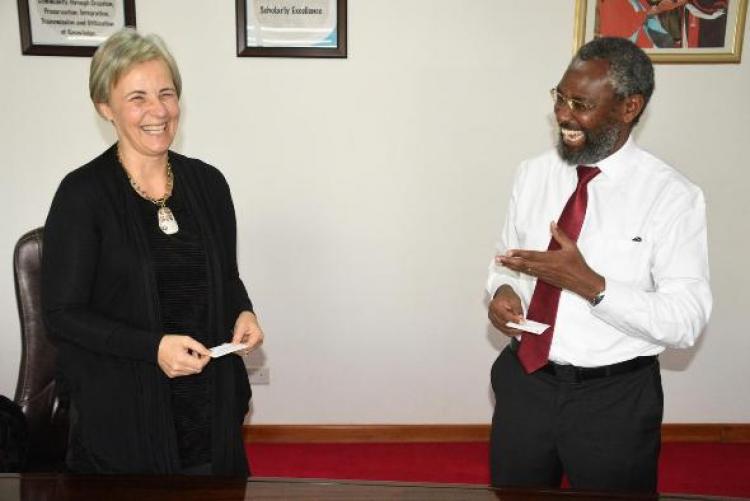When Vasco Da Gama arrived in Kenya in 1499 little did he know that some five hundred years later, Kenyan universities and Portuguese universities would be having academic exchange programs.
Speaking during a courtesy call to the University of Nairobi Vice Chancellor, H. E. Luisa Fragoso, Head of Missions, Portugal revealed that the exchange programs between the universities in Portugal and the University of Nairobi would be centered around science, health, engineering, architecture, history and archeology.
To improve the cultural exchange between Portugal and Kenya, the Portugal Embassy introduced Portuguese language to University of Nairobi staff and students. Students have the opportunity to learn the language from certificate to diploma level. The teaching of the Portuguese language began after a Memorandum of Understanding, MoU was signed in 2017 between Kenya and Portugal. The two countries agreed to work on the historical and cultural heritage to preserve the Portuguese archeological sites; some of these historical sites include; Gedi Ruins, Fort Jesus, Vasco da Gama Pillar among other churches and cemeteries, all being the fingerprints of Portuguese presence in Kenya. The two countries also agreed to work with the Museums of Kenya and Ministry of Tourism as they collaborate on such projects like the Blue Economy. During the International Blue Economy Conference held in 2018, it was observed that the oceans and water bodies in Kenya, have the potential to create one million jobs and hence the need to tap the potential of the oceans, lakes, held and rivers.
“We can collaborate on medical research, do collaborative research on diseases and drugs to fatal diseases like corona virus”, she said. She pointed out that the government of Portugal has been very supportive of the Portuguese during the COVID19 pandemic, paying 70% of salaries to employees working in the private sector.
Prof. Stephen Kiama, the University of Nairobi Vice Chancellor, welcomed the idea, noting that the Portuguese have a rich history dating back to the 1300 century. “We are keen on internationalization. We need staff and students exchange programs to help students with different perspectives of life. The new ideas enrich their research endeavours,” he said.
Among the universities to be considered for collaboration include the University of Lisbon, and Universidade Nova de Lisboa. Students learning Portuguese language have a chance to watch Portuguese movies, read books from Portuguese authors like Maria Joa~o among others.
Going forward a team will be formed that will look into how the working arrangement will be actualized.

